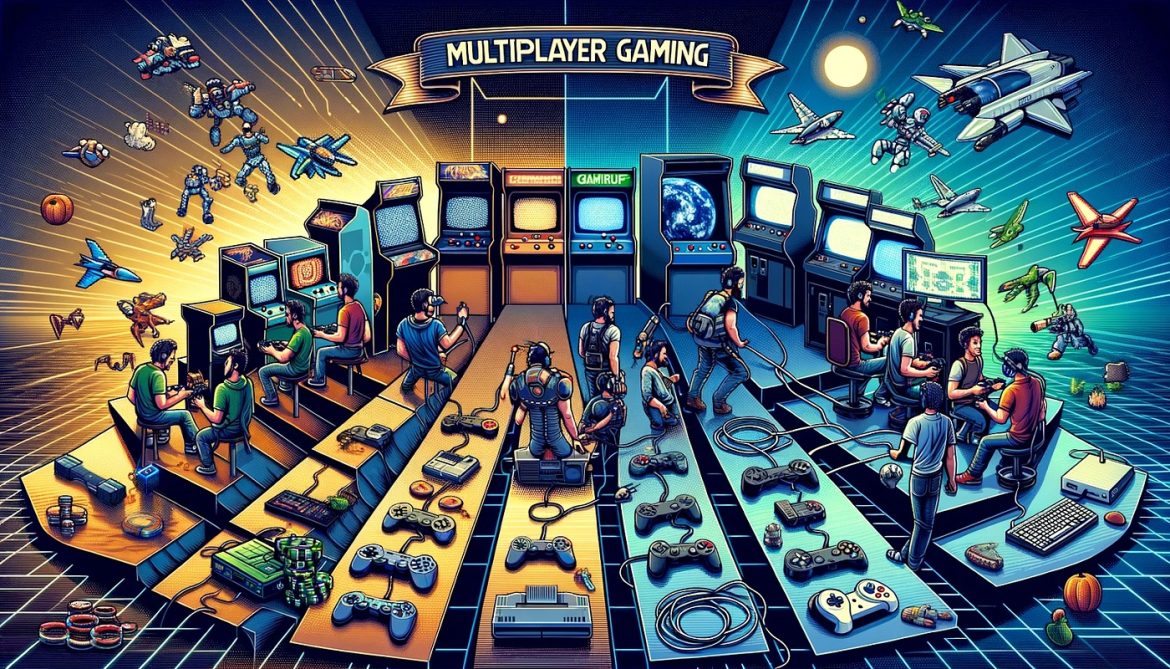Online multiplayer games have undergone a remarkable evolution over the years, not only in terms of gameplay but also in how they foster vibrant gaming communities. In this article, we’ll explore the journey of online multiplayer games and the pivotal role they play in community building.
The Early Days of Multiplayer Gaming
The concept of multiplayer gaming dates back to the early days of computer gaming when text-based adventures and simple graphical games allowed players to connect over networks. These primitive forms of multiplayer gaming laid the foundation for what was to come.
Local Area Networks (LAN)
In the 1990s, LAN parties became popular, where gamers would physically gather to connect their computers and play multiplayer games. This fostered a sense of camaraderie among players.
Emergence of Online Multiplayer
With the rise of the internet, online multiplayer gaming took center stage. Games like Doom and Quake introduced the world to the thrill of battling opponents from across the globe in real-time.
The Social Aspect of Online Multiplayer
Online multiplayer games brought a new social dimension to gaming, enabling players to connect and collaborate with others in ways that were previously impossible.
Voice Chat and Communities
Voice chat systems like TeamSpeak and Discord allowed gamers to communicate and strategize, creating tight-knit gaming communities. These communities extend beyond the games themselves, often becoming hubs for friendships and shared interests.
Guilds and Clans
Many online multiplayer games introduced the concept of guilds or clans, which are groups of players with common objectives. These groups foster teamwork, competition, and a strong sense of belonging.
The Rise of Esports
Esports, or competitive gaming, emerged as a major force in the gaming world. Esports tournaments and leagues attract millions of viewers and offer substantial prize money.
Professional Players and Teams
Esports gave rise to professional players and teams, with players earning salaries, sponsorships, and recognition on a global scale. Esports organizations are now akin to traditional sports teams.
Spectator Experience
Esports transformed gaming into a spectator sport. Fans watch tournaments on platforms like Twitch, and major arenas host live events where thousands gather to witness the action in person.
The Future of Online Multiplayer and Community Building
The future of online multiplayer gaming holds exciting prospects for community building.
Virtual Reality (VR)
VR technology is poised to revolutionize online multiplayer gaming by offering immersive experiences. Gamers will be able to interact in virtual worlds like never before, enhancing the social aspect of gaming.
Cross-Platform Play
Many games now support cross-platform play, enabling users on different gaming systems to play together. This fosters larger and more diverse gaming communities.
User-Generated Content
Games like Minecraft and Roblox allow players to create their own content and share it with others. This not only enhances creativity but also strengthens gaming communities.
Conclusion
Online multiplayer games have evolved from humble beginnings to become a cultural phenomenon. They are not just about gameplay; they are about forming connections, building communities, and even forging careers. As technology continues to advance, we can expect online multiplayer games to further enrich our lives through entertainment, camaraderie, and shared experiences.
